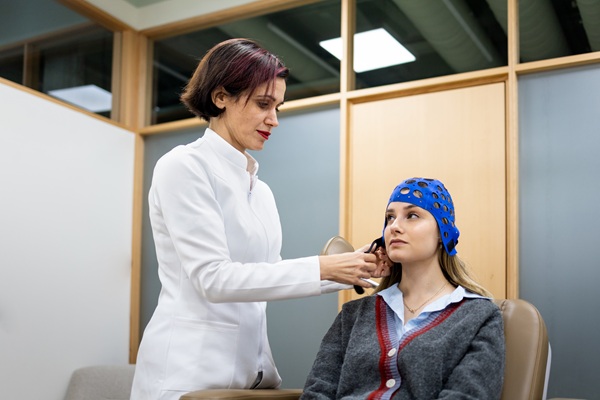Psychiatry: Early Signs of PTSD

In psychiatry, doctors study and treat a wide range of conditions. Difficult life events can bring on some of these issues. Post-traumatic stress disorder is a good example. It is important for you to recognize the signs of this illness. Once you know it is affecting your life, you can get the help you need. It is possible to manage the effects and have sound mental health.
An overview of PTSD in psychiatry
People who understand psychiatry know that PTSD is a serious condition. Patients who suffer from it should not ignore the symptoms and signs. This disorder can come about after the person experiences a traumatic event such as a tragedy, extreme danger, and significantly stressful situation. PTSD can make it difficult for the patient to get the memory out of their head. It can affect a person’s mood and ability to interact with other people. It may even be impossible to hold a job or function in society.
Nightmares or constant thoughts
It is natural for a person to remember certain events or experiences. These memories can help a person learn from mistakes or feel positive about an outcome. With PTSD, an individual cannot get images or sounds of a traumatic event out of their head. The experience may continue to haunt the person and interfere with a good night’s rest. The thoughts may consume the person to the point that it is all they can think about. In other cases, the person could have flashbacks, which feel as though the individual is experiencing the event for the first time.
Mood swings
Mood disorders are a big part of psychiatry. PTSD can also affect the way a person feels about life in general. A PTSD sufferer might feel negative about themselves or people close to them. There could be feelings of guilt, shame, or anger. The person may even contemplate suicide. Family members may also notice that a loved one no longer enjoys activities that they used to like.
Changes in behavior
After suffering PTSD, the person might act differently than before. A calm and rational person suddenly becomes angry and irritable. A deliberate and cautious person could start to act impulsively and recklessly. PTSD victims often have emotional outbursts while driving, speaking to a family member, or working with a colleague.
Avoiding the issue
Like many other issues in psychiatry, PTSD often comes with avoidance. A person with this condition often does not want to address it. When confronted about certain behaviors related to the disorder, the patient may deny them or ignore the person. Sufferers frequently retreat into solitude and stop spending time with people once close to them.
General PTSD triggers
A PTSD trigger can remind an individual of a traumatic experience or event. Flashbacks tend to happen. These floodings of memories bring the person back to the cause of trauma. The individual relives the experience or parts of it repeatedly. All the sensations and emotions from that event come back again. Different things can trigger PTSD like the following:
- Weather
- Images
- Foods
- Noise
- Odors
- Colors
Some triggers are identifiable, while others are more difficult to determine. A place or news about a hostile place can bring a person back to the traumatic experience. Someone who breaks something or lights fireworks can make the individual fearful. Real-world triggers can vary from one person to the other. Being alone, conflict, and fights can trigger the trauma. Below are other possible triggers:
- Loud sounds
- Specific words
- Medical appointments
- Emotional pain
- Speaking tone or style
- Music
- Arguments
- Smells
- Physical characteristics
- Touching
- Objects
- Flavors
- Venues
- Specific age
- Time of the day
- Loss of a family member
- Loss of a pet
Developing PTSD triggers
Trauma memories are seared into the mind through a person’s senses. The brain connects the trauma memory to the sensory experience. Triggering the PTSD symptom happens when the individual experiences the same sensation. The brain informs the body that it is in real danger. The person then either fights or flees.
Recognize and do something about it
It is not good to run away from mental health issues. PTSD is no exception. If you look at this list and realize that you have all the symptoms of post-traumatic stress disorder, visit a doctor. A psychiatrist near you can listen to your struggles and recommend the right treatment. Though it may be difficult to face these problems, your doctor can work with you to ensure you achieve the mental health you need.
Get more information about Future Psych Solutions in Columbia at https://futurepsychsolutions.com.
Check out what others are saying about our services on Yelp: Psychiatry in Columbia, SC.
Recent Posts
Mental health plays a critical role in overall well-being, influencing thought patterns, emotional stability, and behavior. For those experiencing persistent challenges, a formal diagnosis can provide clarity and a structured approach to healing. With guidance from a psychiatrist, individuals can better understand their condition and begin a path toward long-term mental wellness.A mental health diagnosis…
Are you looking for a TMS doctor? A TMS doctor is one that offers Transcranial magnetic stimulation to treat patients with major depressive disorder, which is also called MDD or clinical depression. Every TMS doctor utilizes their own method of treatment and many practices under other titles such as that of a psychiatrist. Learning more…
Post-traumatic stress disorder (PTSD) is a mental health condition that can develop after experiencing or witnessing a traumatic event. PTSD treatment aims to reduce symptoms and help people function better in their daily lives. It also focuses on improving their overall health and well-being. PTSD often causes anxiety, flashbacks, and emotional distress, making effective treatment…
Everyone experiences occasional anxiety, but an anxiety disorder involves persistent, excessive worry and physical symptoms that can disrupt daily routines, relationships, and overall well-being. If left untreated, these symptoms can intensify, impacting mental and physical health. Seeking help from a psychiatrist can be a significant first step toward effectively managing anxiety disorder symptoms and getting…


